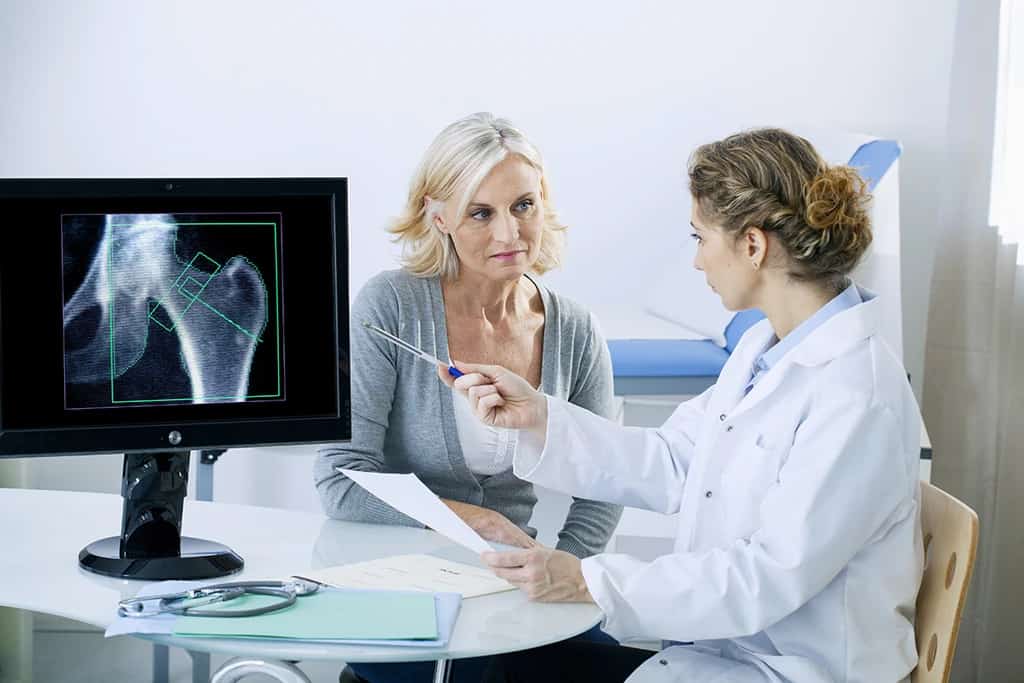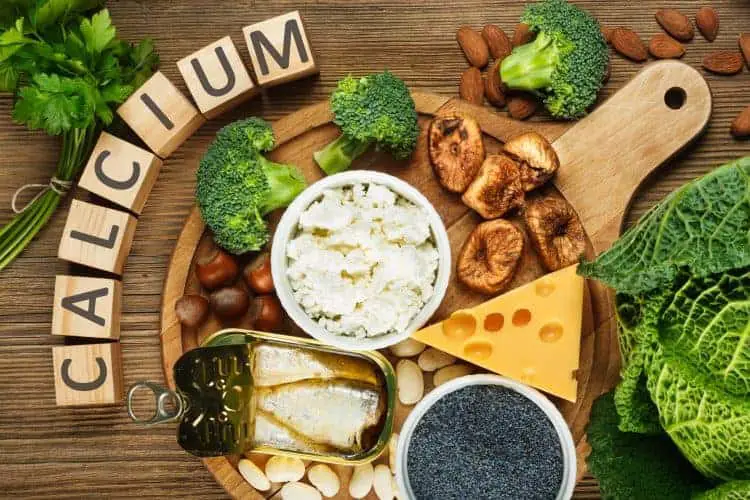Coffee is inarguably one of the most widely consumed beverages around the world. Despite several health benefits associated with coffee, rumor has it that coffee, due to the presence of caffeine may be damaging our bones, thus exposing us to the risk of osteoporosis.
Does coffee cause osteoporosis? This article will take you through what osteoporosis is, satisfy your curiosity on whether or not coffee does cause osteoporosis, and finally give you tips to prevent this deadly disease.

What is Osteoporosis?
Osteoporosis is a chronic disease that affects the bone. Bones make up the skeletal system that supports our body and protects the vital organs. Osteoporosis is a disease that weakens the bone and exposes it to unexpected fractures.
Osteoporosis patients have less and weak bone mass. This disease doesn’t show symptoms at an early stage until the condition of the bone deteriorates and finally leads to severe bone fractures.
The most common sites of fracture are the spine, hip, and wrist. People who already have low bone density are at greater risk of developing osteoporosis, and when they do, their condition is called osteopenia.
Although osteoporosis is a disease that affects both genders, women are at greater risk of developing it. According to studies, after hitting the age of 50 years, one in two women are likely to experience osteoporosis-induced bone fracture while just one in four men is at risk.
What is the Science behind Osteoporosis?
Although research is yet to figure out why people develop osteoporosis, they have figure out how it develops. Our bones are made up of tissues. The inner layer of a bone is called trabecular bone – it’s spongelike. The outer shell wrapped around the interior of the home is called cortical bone – it’s hard.
When osteoporosis occurs, the holes in the trabecular bone increase in number and grow larger. Consequently, this weakens the interior of the bone. Osteoporosis is a result of a faster and larger bone breakdown without corresponding remodeling.
Bone stores calcium and other necessary minerals. Remodeling is the process through which the bone breaks down stored calcium and minerals to produce new bones and strengthen the bones.
Until the age of thirty, we normally build more bone than we lose. However, when osteoporosis sets in due to aging and other factors, we tend to lose more bones than we build up. Consequently, there will be a gradual loss of bone mass. Women particularly are at risk of faster and greater bone breakdown after menopause.
Osteoporosis occurs when the bone system has less calcium and minerals needed to produce new bones yet, loses more bone. This disease hinders bone remodeling due to the loss of calcium and minerals required.

Possible Symptoms of Osteoporosis?
Although this disease is reputable for hiding itself until the bone condition gets worse, there are some signs you can look out for to detect its presence. These include;
- Bone fracture
- Change in posture
- Pain in the lower back
- Decrease in height
Since osteoporosis affects majorly the bone, we should consider the link between coffee and bone health before we determine whether or not coffee does expose us to osteoporosis.
Coffee and Bone Health
Coffee may have both positive and negative effects on your bone health.
Positive Effect of Coffee on Bone Health
Despite allegations of osteoporosis, some studies have shown that coffee also aids bone development.
A recent study published in the Journal of Clinical Endocrinology & Metabolism, on the relationship between coffee and bone health, found out that coffee may be associated with an increase in bone density.
Out of the data of 564 people examined, it was found that people who habitually drank coffee had more bone mass density than people who do not.
The study found three metabolites in caffeine, which were claimed to be associated with an increase in bone density.
According to Chad Deal MD of Cleveland clinic, although previous research has shown that caffeine consumption leads to loss of calcium, this may sound like good news because coffee may be good for bone health.
It was also found that aside from caffeine, a stimulant that gives instant energy, coffee contains polyphenols, which aids the production of osteoblasts, cells that facilitate the production of bone and improve bone health.
Adverse Effect of Coffee on Bone Health
There is an assertion that coffee may adversely affect bone health and expose the body to chronic diseases such as osteoporosis.
While this assertion may be true to an extent, it’s merely a possibility. Coffee can lead to osteoporosis if consumed in large quantities and if the consumer was already at risk.
Here is an explanation of the case against coffee;
Caffeine present in coffee is the chief culprit in several allegations against coffee. According to studies, excess consumption of coffee may lead to an increase in loss of calcium through urine.
As stated earlier, osteoporosis is a disease that results from the loss of calcium and the necessary mineral required for building and strengthening bones. As such, caffeine affects how the kidney process calcium and leads to faster loss of calcium during urination.
Guess what? This shouldn’t be a problem!
This is a case of loss of calcium and its quick replacement. Once you can replace calcium as much as you lose it, your bone health should be intact.
Dr. Robert R. Recker, the director of the Osteoporosis Research Center at Creighton University in Omaha, in an interview with New York Times, stated that coffee does not necessarily increase bone fracture. As such, there is no need to worry once the body gets calcium replacement.
According to a review published in the journal of food and chemical toxicology, consumption of coffee even up to 8 cups per day can not expose a healthy adult to the risk of bone fracture once there is enough supply of calcium.
Based on the evidence, it is true that the higher the intake of caffeine, the higher the loss of calcium through urine.
However, it has been asserted by Connie M. Weaver, professor of nutrition at Purdue University, that the more we lose calcium during urine, the more our body will absorb needed calcium from other sources, such as foods we consume.
The bottom line is that consumption of coffee may not lead to osteoporosis once our bodies get enough supply of calcium from other sources.
According to America and Bone Health, consumption of adequate calcium and vitamin D can weaken the effect of caffeine on bone health. Women are at greater risk of loss of bone mass especially due to menopause.
As such, for women above 50 years of age, 1,200 milligrams of calcium is recommended in a day, while men in that same age bracket need 1,000 milligrams, according to the National Institute of Health.
The Body and the Supply of Calcium
Calcium is a very important nutrient. The body needs calcium to build healthy bones and teeth and also strengthen them. Everyone, both old and young needs calcium.
Aside from protecting our bone health, almost every cell in the body makes use of calcium in some way. Calcium aids normal blood to clot, smooth functioning of muscles and nerves, and normal heart to beat.
The bone is the major store of calcium and mineral in the body. One of the health hazards of calcium deficiency is osteoporosis, a chronic disease that destroys the bone.
When you fail to consume enough calcium, your body begins to source calcium from your bone, thereby decreasing your bone mass. Although osteoporosis is a preventable disease, taking enough calcium is a great measure against this chronic disease.
Sources of Calcium

The best source of calcium according to medical and dietary experts, is food. Food sources of calcium include;
Dairy Products
The best source of protein are dairy products. Milk (including soy and almond milk), cheese, and yogurt are calcium-fortified. You can utilize the following tips to incorporate dairy products into your daily diet.
- Add milk to your coffee and tea.
- Incorporate milk or yogurt in your smoothies.
- You can add milk to your sauces or use it as a base.
- Substitute milk for water in your oatmeal and other cereals.
- Make waffles and whole wheat cereal using yogurt and milk.
- Snack on different types of cheese.
What if you are Lactose Intolerant?
Some people are sensitive to milk due to the inability to digest lactose found in milk. If you are lactose intolerant you may experience stomach upset, vomiting, or have diarrhea after taking milk.
To meet your calcium need as calcium intolerant, you can try lactose-free milk or calcium-rich soy or almond milk. You should also consume more dairy products that contain less lactose, like cheese and yogurt.
Nondairy Calcium-Rich Food
Green leaf vegetables are a good source of calcium. Other foods are bony fish, cereal, beans, dried peas as well calcium-rich juices. The following are tips on how you can incorporate calcium-rich foods into your diet;
- Incorporate more dark green leafy salads into your meals. These include butter lettuce, watercress, arugula, and mesclun.
- Top your salads and sandwiches with bonny fishes like salmon and sardines.
- Eat more legumes and beans. Try black beans, tempeh, black-eyed peas, dried beans, and tofu. They are wonderful in stews and soups or as the protein part of a meal. These are good sources of protein and calcium.
- Dilute your soups, stir-fries, and casseroles with greens. Cabbage, dandelion greens, turnip greens, broccoli are all super great.
- Start your day with cereals such as oats. Oats are filling. You can add granular and cinnamon to your oat, and do not forget to prepare it with milk in place of water.
Calcium Supplement
In some extreme cases of calcium deficiency, calcium supplements may be medically recommended. People who can’t get enough calcium from food sources (especially those who are lactose intolerant) may take calcium supplements to get the required amount of calcium.
Aside from these people, heavy caffeine consumers may also consider calcium supplements but based on medical advice.
According to experts, supplements can increase daily calcium intake by almost 300 mg of calcium per day. According to the National Institutes of Health Office of Dietary Supplements, almost 43% of adults in the US take calcium supplements, including over 70% of older women.
There are different types of calcium supplements depending on dietary needs or medical conditions. Examples of calcium supplements are calcium carbonate, calcium gluconate, calcium lactate, and lactose citrate.
Even though the need for supplements may arise, studies have shown that they may have some adverse effects. According to PubMed, calcium supplements may expose the body to the risk of several diseases such as heart attack and kidney stones.
As such, if there is no special need, source your caffeine dietary need from food. If it’s quite expedient to take calcium supplements ensure you seek medical advice.
Caffeine and Osteoporosis in Post-Menopause Women
Menopause is a natural biological process that marks the end of menstruation and fertility in women. As asserted by the National Institute of Aging most women reach menopause between the ages of 45 and 55.
One of the important conditions that arise during menopause is a drop in estrogen levels which may adversely affect bone health. This is possible because estrogen plays an important role in strengthening the bone.
According to Dr. Robert Wermers, Endocrinology, Mayo Clinic, Rochester, Minnesota, as women approach the age of menopause, they are more vulnerable to bone loss.
Within three years preceding menopause, women go through a phase of bone loss, which may amount to 2 percent of their overall bone mass lost every year within those three years.
Due to the underlying condition of bone loss due to menopause, additional events that may affect bone health may trigger osteoporosis. During this period women need more supply of calcium.
While caffeine consumption may not outrightly lead to bone loss, its excess may increase the risk. A study on caffeine and bone health found that, due to calcium imbalance, high caffeine intake may lead to cortical bone loss in elderly women.
As such, post-menopause women are advised to reduce their caffeine intake compared to ordinary adults.
The following are tips to reduce the risk of osteoporosis after menopause:
1) Increase your calcium intake through food sources. You do not necessarily need calcium supplements unless it is recommended medically.
2) Exercise your body adequately. Weight-bearing exercises are highly recommended for preventing fractures. Strength training also strengthens bones and muscles around the arm and spine.
3) Ensure you get enough vitamin D because it helps the body absorb calcium. Majorly vitamin D can be derived from sun exposure. However, you may also have Vitamin D from some foods. You can take a blood test to ascertain your vitamin D level.
4) Avoid excess caffeine. Caffeine leads to more loss of calcium through urine. Take caffeine-rich beverages in moderation.
5) Avoid excess alcohol intake. According to the mayo clinic, post-menopausal women shouldn’t take more than one drink in a day.
6) Avoid smoking. Smoking exposes you to more risk of osteoporosis.